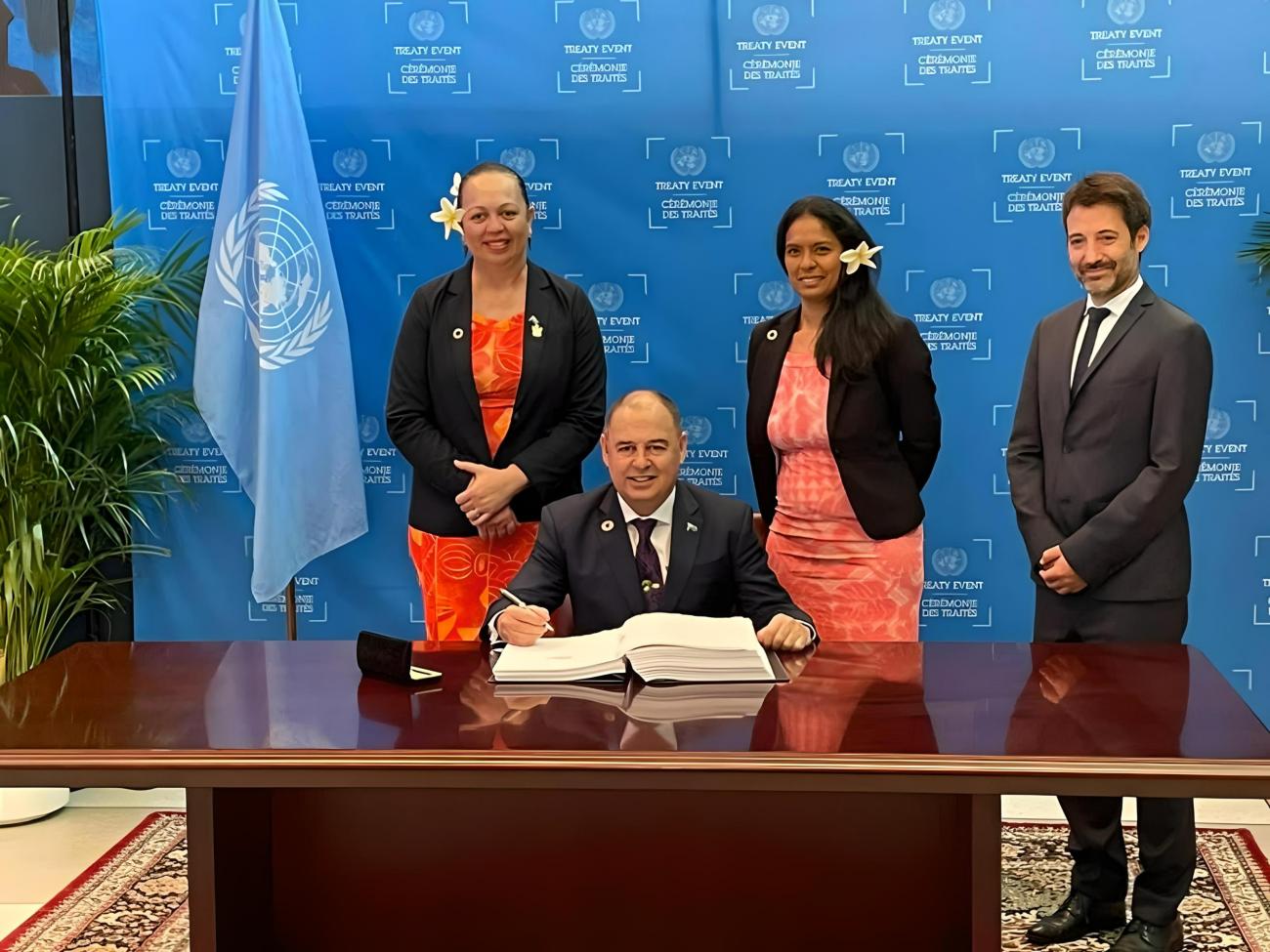Cook Islands sign historic agreement to safeguard marine biodiversity beyond national jurisdiction
Friday 29 September 2023 | Written by Supplied | Published in Economy, National

Prime Minister Mark Brown signing the Agreement under the United Nations Convention on the Law of the Sea (UNCLOS) on the Conservation and Sustainable Use of Marine Biological Diversity of Areas Beyond National Jurisdiction (BBNJ). MFAI/23092958
The Cook Islands has reaffirmed its commitment to the conservation and sustainable use of marine biodiversity by signing the Agreement under the United Nations Convention on the Law of the Sea (UNCLOS) on the Conservation and Sustainable Use of Marine Biological Diversity of Areas Beyond National Jurisdiction (BBNJ).
The Agreement was signed by Prime Minister Mark Brown in the margins of the 78th United Nations General Assembly (UNGA78) last week in New York City.
The Pacific has for decades been at the forefront of ocean stewardship, and the Federated States of Micronesia, as the first country to sign the BBNJ Agreement last week, was further affirmation of that contribution and legacy. The Cook Islands was the 77th country to sign in two days of a special treaty signing event last week, alongside ten other Pacific Island Forum (PIF) Members who signed the BBNJ Agreement over the two days.
The BBNJ Agreement is the result of extensive negotiations by States Parties to UNCLOS, including the Cook Islands. After many years of effort, the final text was adopted by consensus in June 2023. The treaty aims to address the gaps which exist in the current governance regimes of the high seas and the seabed beyond any single nation's jurisdiction, which are areas often rich in biodiversity and essential to the health of the world's ocean.
Nearly two-thirds of the ocean lies outside any country’s national jurisdiction or control. These are the high seas – the waters beyond any country's Exclusive Economic Zone – and the deep seabed area beyond their continental shelves. The BBNJ Agreement fills several gaps in the international legal framework governing biodiversity beyond national jurisdiction, and will help address emerging threats to, and use of biodiversity.
PM Brown’s signing of the Agreement, with Cabinet approval, underscores the Cook Islands’ role as a responsible custodian of our ocean, as well as our unwavering commitment to sustainable management, marine conservation, and international cooperation.
He expressed gratitude for the years of tireless effort by Cook Islands officials, led by the Ministry of Foreign Affairs and Immigration (MFAI), during challenging negotiations at the Intergovernmental Conference (IGC) sessions.
“This sort of work can often seem to go unnoticed, but that isn’t the case. I commend all those who ensured the Cook Islands’ interests were advocated for in this process, both as part of the delegations which attended, and in the agencies who supported from home,” said Brown.
“The Pacific Island Forum’s overall leadership and contribution to the negotiations and final text is a legacy we can all be proud of.”
While the signing of an international treaty is not legally binding, it demonstrates the willingness of the signatory State to eventually ratify the treaty following the required national legal processes.
- MFAI












































